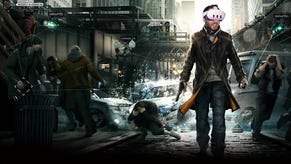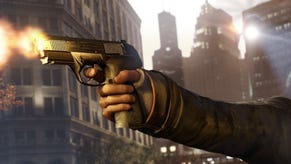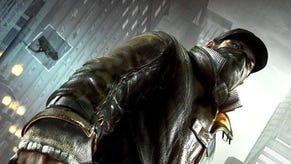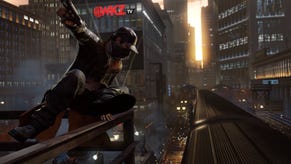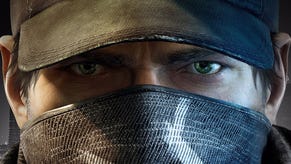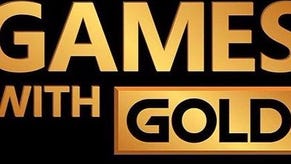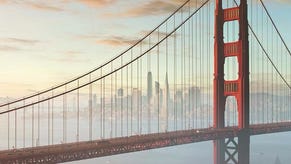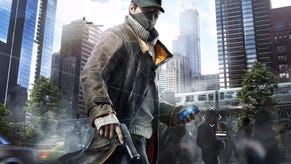Why Watch Dogs was delayed
"It takes balls to do it, and I like that."
Four months have passed since Watch Dogs' initial launch date and still the game isn't on shop shelves. But - as announced earlier today - Ubisoft's tech-savvy open world is now, finally, coming. Just two more months remain until its marathon five-year development draws to a close.
Game delays are hardly rare - far from it - but Watch Dogs' last-minute postponement still raised eyebrows. The decision was made just four weeks before the game's original 19th November launch, and its profile as a major next-gen console launch title meant many had already pre-ordered the game in a bundle with a new console to play it on.
Speaking to Eurogamer at a preview event in Montreal, creative director Jonathan Morin says that Watch Dogs would have been been "pretty good" and "fun to play" in its November build - but that it was missing "important details".
"When you're promising a player that they can hack everything and express themselves, they expect the result to be there," he explains. "A complicated game that is broken is no more acceptable than an easier one that works."
There was general agreement among Watch Dogs' team that the game's many systems had to coexist perfectly at launch or the whole game would suffer. Have your first hack fail due to some unlikely combination of AI and open world activity, for example, and you would immediately lose all immersion in the game's fantasy.
It's these details that Ubisoft has been busying itself with since then, rather than adding in any grand new features. It's all about being able to "deliver on expectations", Morin continues. Unquestionably a next-gen game in looks and concept at its E3 2012 reveal, to compromise now would jeopardise the wave of goodwill Ubisoft is still surfing from that first, overwhelmingly positive reception.
"We knew that there was a fatigue - we were part of that fatigue too."
Jonathan Morin, Watch Dogs creative director
"Our biggest goal [with the E3 reveal] was to suggest something new. We knew that there was a fatigue - we were part of that fatigue too - of playing the same things. It was a safe market, the last couple of years. It's often the case at the end of the cycle but it was particularly true that time. We were excited, frightened, to show the game so early but Ubisoft had a point, I think - that people wanted to see something different."
The desire for more polishing time - shared by Morin and his team - didn't need much persuasion within Ubisoft - even among the company's top brass.
"To be quite frank with you," Morin smiles, "and this may seem like political bulls***, but Ubisoft offers a combination of things I don't know if I could find anywhere else." Much of this stems from the fact that Ubisoft's upper hierarchy largely have backgrounds in games design - rather than the business of simply making money.
"I pitch games to designers," Morin continues. "I'm not pitching a concept to businessmen - which would make my pitch different. I wouldn't like it. So when we arrive at such a big decision [as the delay] there are a lot of people high up who already have all of my bullet points before I've even sent them. The fact that they understood that meant all I had to say was 'I agree'."
But still - even with the game's team on board and Ubisoft's suits in agreement - who made the final call? Who had to tell investors that 2013 would have one less financial blockbuster on the balance sheet? Step forward company boss Yves Guillemot.
"The person who had to have balls is Yves," Morin says. "He's the boss so he had to have the courage to say to the stockholders: 'We think it's best to do this'.
"I didn't have to go to Yves and say 'I need you to spend more money on Watch Dogs!'" Morin laughs. "Ubisoft isn't that kind of company.
"I have to give credit to him. I don't know many people who would have said that based on systemic gameplay stuff. A lot of people would have said 'who cares? who will find that? nine players out of 10 won't get there!' even if it wasn't true just to get the game made faster."
"A lot of people would have said 'who cares? who will find that? nine players out of 10 won't get there!'"
The one casualty in all of this is the game's Wii U version. Nintendo's low install base makes work on its struggling home console an easy choice for re-prioritising.
"It's been paused," Morin states of the Wii U build, "which means delayed.
"There were some very talented programmers working on it and, when we started to point at the things we needed to fix, we needed those guys and their experience. It was a logical choice to say - let's get those people, let's pause the Wii U thing, let's make sure the experience is where we wanted to be.
Once other versions are done, "then Wii U can get back into place," he concludes.
Will it all have been worth it? There's not long to wait for us to properly find out - and we'll have hands-on gameplay impressions very soon to tide you over. But could any game ever live up to the hype generated by the game's first showing?
"I think we're delivering," Morin argues. "Are we delivering the 'movie [style vision] of every single person on Earth who saw that? Probably not, that's not possible. But are we delivering on this fantasy of being a hacker, controlling everything and approaching things in different ways - yes.
"Ubisoft, I think, believes that it pays off a lot more in the long run to deliver quality. [Watch Dogs is] a new IP - it's one of the rare new IPs right now - and yes it hurts when you push a game back. But it takes balls to do it, and I like that.
"There was a push back on Far Cry 3 as well and I like the statement... to just say 'it's not there yet'. It's a nice pattern. It's not a nice pattern to not ship on time [laughs], but I think it's important in the long run not only for Watch Dogs but for the future of the company and all the other games Ubisoft Montreal is making - to prove that not only can we delay a big game but that when it ships it feels like it matters when you delay it, that it was worth it. I think we proved that with Far Cry 3, so let's see if we can pull it off here as well."
Has it been worth the wait? Take a look at our first impressions of the game.
This article was based on a press trip to Montreal. Ubisoft paid for travel and accommodation.


